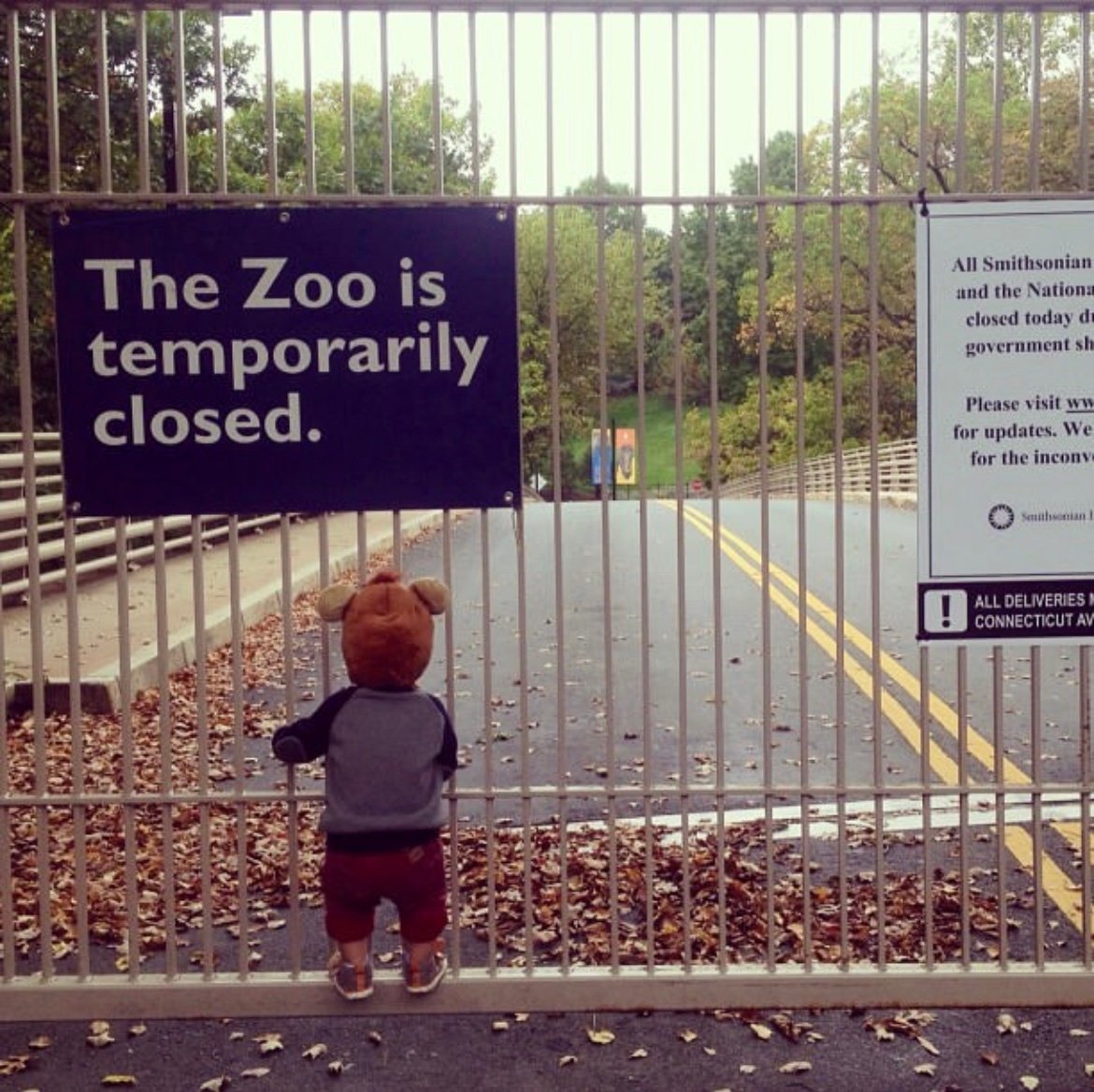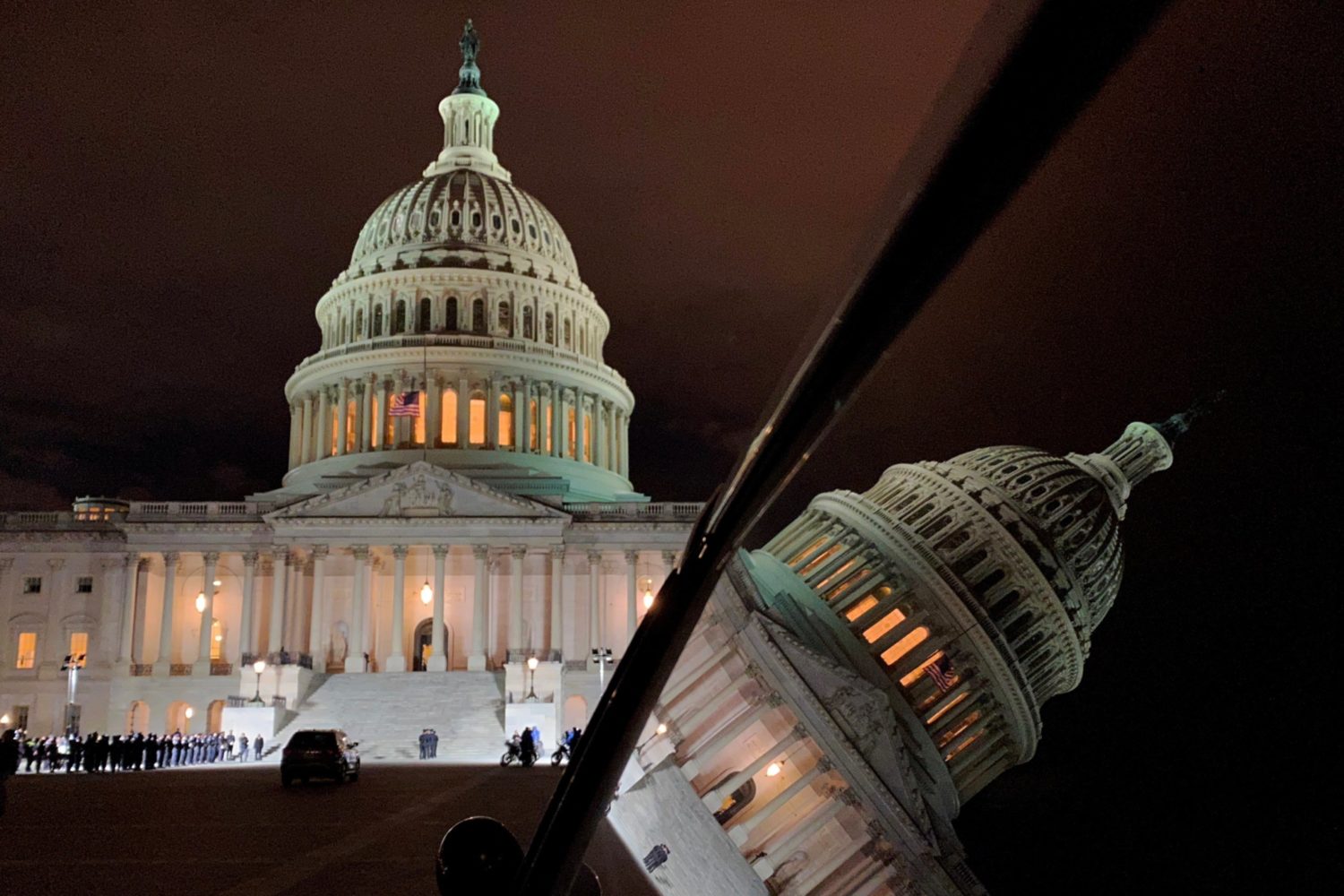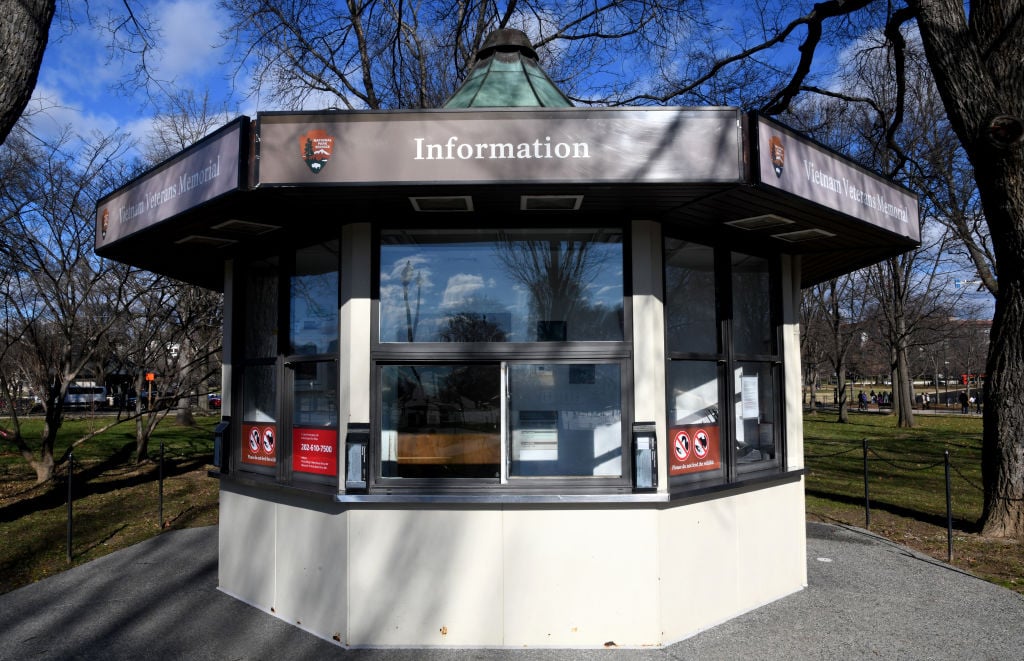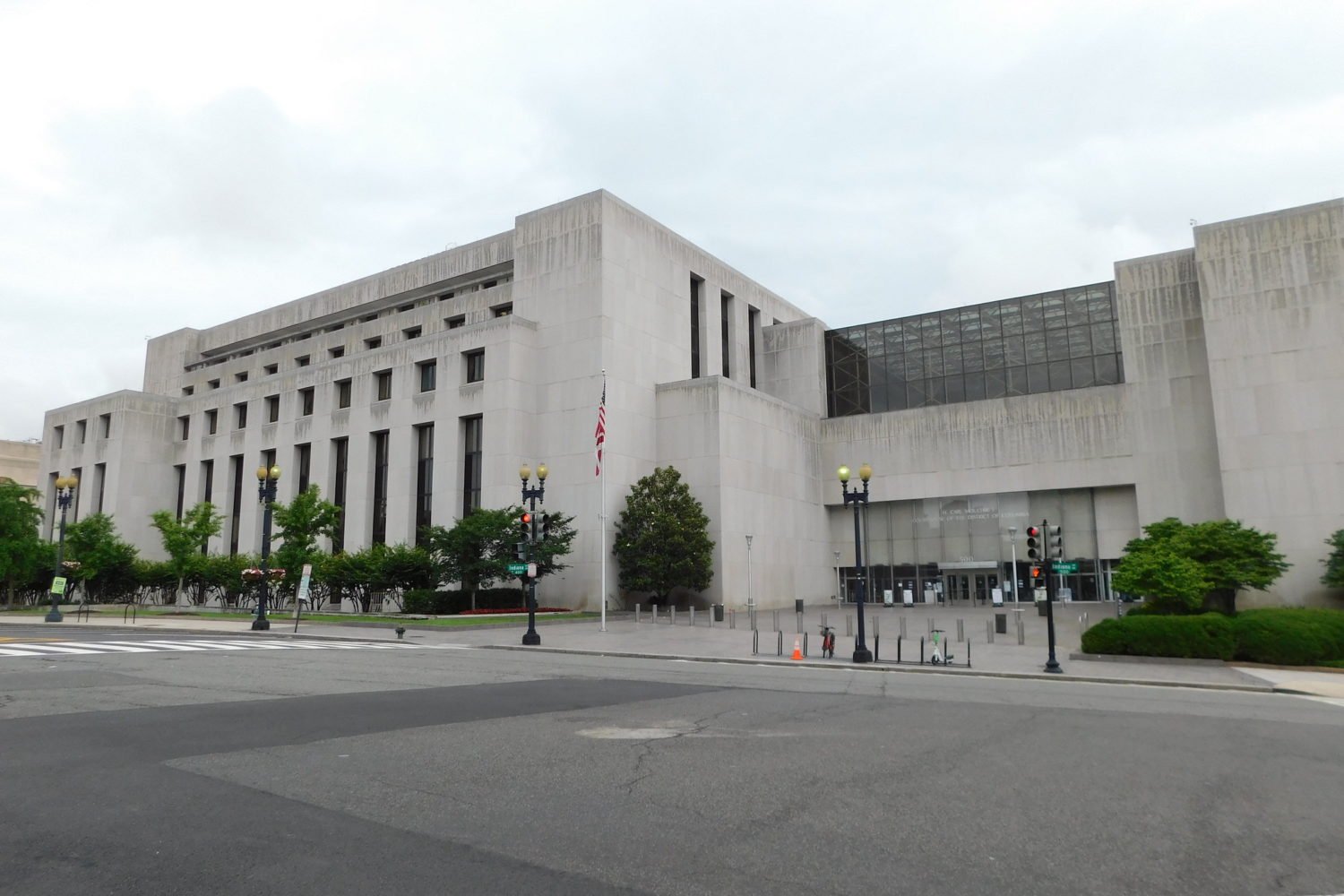Ten years and one day ago, Justin Whitmel Earley and his 1-year-old son, Whit, left their house in DC and walked seven minutes toward the National Zoo with no idea that they were about to set the internet ablaze. Justin was in law school at Georgetown at the time (he’s now a lawyer and an author), and on most afternoons, he and Whit visited the zoo after stopping to admire some construction near its entrance on Harvard Street, Northwest. Whit wore his favorite hat, which had monkey ears on it.
The zoo, like national parks and other facilities funded by the US government, was closed that day because of a shutdown fueled by GOP ambitions to delay implementation of the Affordable Care Act, or to perhaps even stymie it altogether. So Justin and Whit watched the construction trucks instead—until Whit got bored and climbed up on the zoo gate that was normally open, holding onto the bars underneath a sign that read “The Zoo is temporarily closed.” Justin snapped a picture on his phone and texted it to his wife, Lauren, who worked for the philanthropy services firm Arabella Advisors. “It’s just one of the million pictures that you send to your spouse of your children,” he says.
The next morning was October 10. “I was in the gym at Georgetown Law,” Justin says. “And my brother sent me a text that said, ‘Whit is on the front page of the Atlantic.’” At first, he says, he thought, “Oh, this is funny. My brother has figured out a way to create a fake homepage.” But then he started clicking around. “It’s on CNN, it was on Fox News. I mean, it’s on every site,” he says.
The Atlantic branded Earley’s photo the “Defining Image of the Shutdown.” The Today show called it the shutdown’s “saddest photo.” HuffPost said it was “Just Another Reminder Of Why The Government Shutdown Stinks.” Someone who definitely didn’t have too much time on their hands re-created the photo with an adult standing in Whit’s place.
“That’s when I started texting Lauren,” Justin says, “and I was like, Did you post this picture?” She had, in fact, put it on her private Instagram account with the legend “What the #shutdown means for my fam.” (Whit was “not actually sad in the shot,” she commented later, after the picture went bananas. “He’s happy climbing, and his other approx 1000 zoo trips will see him thru this closure.”) But a little sleuthing revealed that it got into the mainstream by a twistier route: Lauren had sent it to her mother, who put it on her Facebook page like “a good grandma,” Justin says. One of her acquaintances screenshotted it and put it on Reddit with the caption “Please Open The Government,” and it entered the media bloodstream from there.
Suddenly, Whit had become the face (or more accurately, the back of the head) of the increasingly unpopular shutdown. And at that moment, he and his parents, though unidentified, became subjects of commentary. Family friend Anne Midgette, then a critic at the Washington Post, reported that one Atlantic commenter called the child an “Entitled little bastard,” which she noted was “a lot to read into the back side of a kid in a monkey hat.”
“We took some real shots from people online,” Justin says. “Like, either we were idiot parents who didn’t know the government was shut down, or we were evil politicizing parents who were using our kid for a prop.” They kept a lid on their identities, but as usual in Washington, the word got out: At a party that weekend, he says, he heard people whispering excitedly, “That’s the zoo kid.”
They declined an offer, made through friends, to appear on the short-lived 2013 revival of the Arsenio Hall Show, though they did do an interview with a Romanian radio show about the pitfalls of social media. “It created such a fervor,” Justin says. “And none of it was right. Not a single person knew what actually happened. But everybody had a field day with it.” People projected their own meaning on Whit’s photo. “I think that was one of my loss-of-innocence moments of realizing that photographic evidence has no monopoly on reality,” Justin says. “It can be wildly misinterpreted.”
Whit is now 11 and marginally aware of his viral moment. Mostly, Justin says, the whole affair became a “really fun family-and-friends story” that resurfaces every time another shutdown becomes possible, like at the end of this past September. And like any good writer, Justin found something he could use from the experience: “My first book was in no small part about the problems of social media and internet use,” he says. “This was one of those events that made me realize that social media, amongst other reasons, can be an unhealthy place to take your view of reality.”
The family hasn’t ever re-created the photo with Whit as an older boy but, after I asked about it, Justin said they’d probably do that the next time they come to DC for a visit (they still have the monkey hat in a closet, Lauren says). They moved to Richmond in 2014, and Justin and Lauren still post photos of their kids online—the experience “didn’t affect me that way,” he says. “But it did affect my skepticism of our ability to evaluate reality as a public.”
“Going anonymously viral, when you didn’t do anything that was wrong, or that you’re embarrassed about,” he says, “was mostly a pleasant experience. A friend reminded me actually this weekend: Sunday it’s you on the front page. But tomorrow, it’s always somebody else.”



















